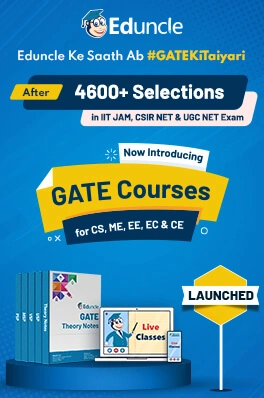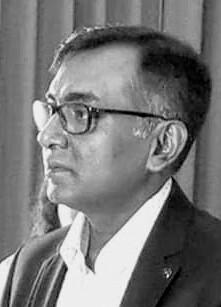Time management is very much important in IIT JAM. The eduncle test series for IIT JAM Mathematical Statistics helped me a lot in this portion. I am very thankful to the test series I bought from eduncle.
Nilanjan Bhowmick AIR 3, CSIR NET (Earth Science)
Shuvadip Das posted an Question
- UGC NET
- English
In cultural studies f. r. leavis belongs to marxist or not?
In Cultural Studies F. R. Leavis belongs to Marxist or not?
- 0 Likes
- 5 Comments
- 0 Shares
-
![comment-profile-img]() >
>
-
![comment-profile-img]() >
>
Deb dulal halder Halder
![best-answer]()
cultural studies is a phenomenon of the 1960s when Raymond Williams and other Marxists redefined the field of culture and began to see culture as a way of life. this redefintion led to cultural studies as a parameter of studies. F. R. leavis is writing before that and only thinks of culture from the point of view of the ideal which is a very limited view of culture.
-
Sumayya siddiqui Best Answer
No, Leavis is a kind of ‘practical critic’, but also, in his concern with the concrete specificity of the ‘text itself ’, the ‘words on the page’, a kind of New Critic too: ‘[the critic] is concerned with the work in front of him as something that should contain within itself the reason why it is so and not otherwise’ (‘The Function of Criticism’ in The Common Pursuit, 1952 – note the sideways reference to both Arnold and Eliot in the essay’s title). But to regard Leavis simply in this way, with its implication of inherent formalism and ahistoricism, is a mistake; for his close address to the text is only ever to establish the vitality of its ‘felt life’, its closeness to ‘experience’, to prove its moral force, and to demonstrate (by close scrutiny) its excellence. Just as Leavis’s moral fervour distinguishes him from the more abstract or aesthetic formalism of the New Critics, so too does his emphatically sociological and historical sense.
-
Sumayya siddiqui
![best-answer]()
No, Leavis is a kind of ‘practical critic’, but also, in his concern with the concrete specificity of the ‘text itself ’, the ‘words on the page’, a kind of New Critic too: ‘[the critic] is concerned with the work in front of him as something that should contain within itself the reason why it is so and not otherwise’ (‘The Function of Criticism’ in The Common Pursuit, 1952 – note the sideways reference to both Arnold and Eliot in the essay’s title). But to regard Leavis simply in this way, with its implication of inherent formalism and ahistoricism, is a mistake; for his close address to the text is only ever to establish the vitality of its ‘felt life’, its closeness to ‘experience’, to prove its moral force, and to demonstrate (by close scrutiny) its excellence. Just as Leavis’s moral fervour distinguishes him from the more abstract or aesthetic formalism of the New Critics, so too does his emphatically sociological and historical sense.
-
Sumayya siddiqui
No, Leavis is a kind of ‘practical critic’, but also, in his concern with the concrete specificity of the ‘text itself ’, the ‘words on the page’, a kind of New Critic too: ‘[the critic] is concerned with the work in front of him as something that should contain within itself the reason why it is so and not otherwise’ (‘The Function of Criticism’ in The Common Pursuit, 1952 – note the sideways reference to both Arnold and Eliot in the essay’s title). But to regard Leavis simply in this way, with its implication of inherent formalism and ahistoricism, is a mistake; for his close address to the text is only ever to establish the vitality of its ‘felt life’, its closeness to ‘experience’, to prove its moral force, and to demonstrate (by close scrutiny) its excellence. Just as Leavis’s moral fervour distinguishes him from the more abstract or aesthetic formalism of the New Critics, so too does his emphatically sociological and historical sense.
Do You Want Better RANK in Your Exam?
Start Your Preparations with Eduncle’s FREE Study Material
- Updated Syllabus, Paper Pattern & Full Exam Details
- Sample Theory of Most Important Topic
- Model Test Paper with Detailed Solutions
- Last 5 Years Question Papers & Answers
Sign Up to Download FREE Study Material Worth Rs. 500/-










 >
>








Deb dulal halder Halder
you should not include F. R. Leavis in cultural studies as a theorist. it is against people like Leavis that cultural theorists like Raymond Williams are constricting their theory and practice.
Thank you